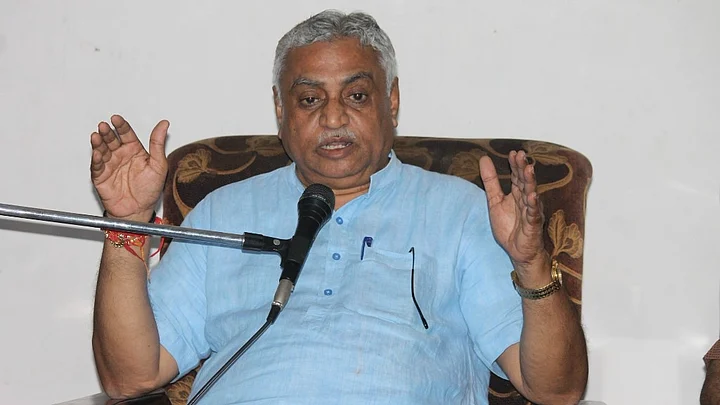The Banaras Hindu University is a symbol of Indianness, while the JNU is that of "un-Indianess", senior RSS leader Manmohan Vaidya said on Monday, 22 January.
There are two ideas of India, one that comes from the West, which is un-Indian in nature, and the one which is completely Indian, Vaidya, the Sangh's publicty in-charge and official spokesperson said.
Actually, the clash between ideologies in the country today is a clash between the two different ideas about India, Vaidya said.
If Jawaharlal Nehru University (JNU) is a symbol of un-Indianness, the Banaras Hindu University (BHU) is a symbol of Indianness. The word Hindu is not a communal word. If you look at the BHU’s constitution, it talks about Indianness.Manmohan Vaidya
Speaking at an event in Delhi to mark the 70th anniversary of RSS-associated weeklies Panchajanya and the Organiser, Vaidya said the the two publications, often seen as RSS mouthpieces, were the only platform where the Sangh could express its point of view.
These are not RSS mouthpieces, he said.
In fact, there is no RSS mouthpiece. These are nationalist publications.Manmohan Vaidya
Speaking about the Sangh's ideology, Vaidya said it is all about “inclusiveness”.
While those claiming to be liberals are themselves "highly illiberal and intolerant" towards people whose ideologies are different from theirs, he added.
Talking about the differences between Sardar Patel and Jawaharlal Nehru over the reconstruction of the Somnath Temple, Vaidya said the Munshi papers have full details of how the country's first prime minister was opposed to Patel and KM Munshi's suggestion of reconstructing the shrine.
However, he added Nehru was not anti-India, but his ideology was different from Patel, the Home Minister, Munshi and even Dr S Radhakrishnan, the second President of the country.
Vaidya had earlier claimed that the “Breaking India Brigade”, which according to the RSS had rasied “anti-national” slogans in JNU in 2016, was the reason behind the Maharashtra violence, reported The Times of India.
“The 'breaking India brigade' had raised anti-national slogans at JNU in 2016 and is now trying to divide the Hindu society but Sangh will not allow it to succeed,” he had said, following the Bhima Koregaon violence, the report adds.
Back in 2016, when the JNU controversy had grabbed eyeballs across the country, Vaidya in an interview with The Economic Times, had also said that “nothing anti-India should be tolerated.”
(With inputs from PTI, Times of India and Economic Times)
(At The Quint, we question everything. Play an active role in shaping our journalism by becoming a member today.)
